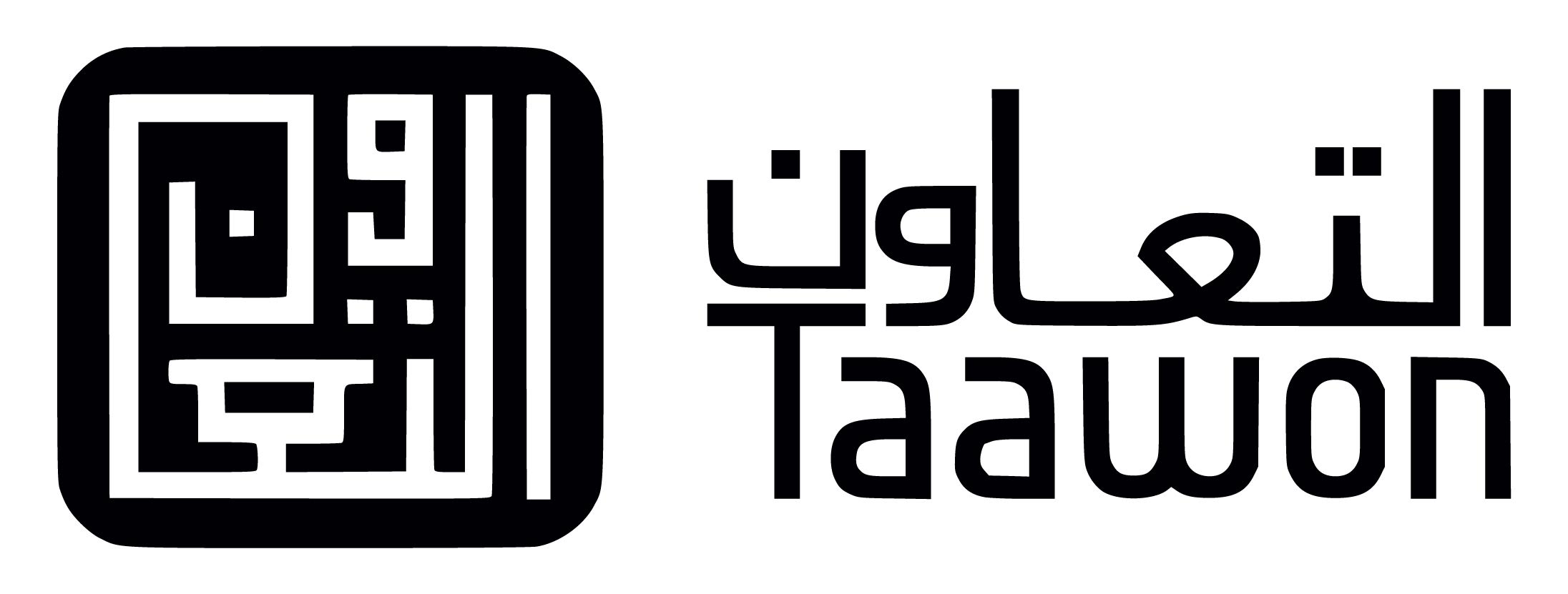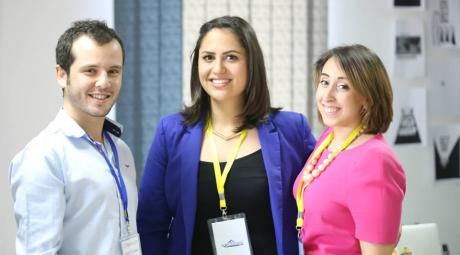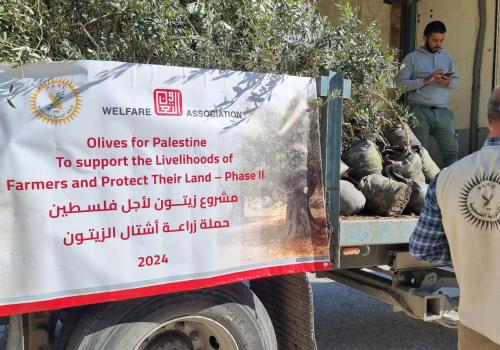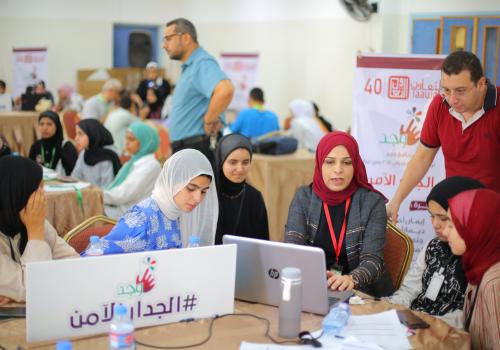The annual Clinton Global Initiative meeting in New York has been bringing together private sector, non-profit and government leaders at the highest levels for now 10 years. According to CGI, to date, members of the CGI community have made more than 3,200 commitments which have improved the lives of over 430 million people in more than 180 countries. One of those commitments is the one made by the Welfare Association, a non-profit organization dedicated to empowering Palestinians. The Welfare Association is a shining example of the types of commitments and organizations that gravitate towards the CGI universe: innovative, successful and seeking to scale their impact.
UN Dispatch had the chance to sit down with the director general of the Welfare Association, Tafeeda Jarbawi, to talk about their newest CGI commitment and the unique challenges they face as a Palestinian NGO.
What is the Welfare Association?
The Welfare Association is a non-profit organization established in 1983 in Geneva, dedicated to the empowerment of Palestinians in Palestine, as well as in the refugee camps of Lebanon. It is a grantmaking organization, which also works to incubate local programs to strengthen local capacity. It is the largest NGO in Palestine. Over the last 32 years, it has invested $600 million in development and humanitarian programs to empower and support Palestinians. The current portfolio of programs is approximately $45 million annually.
The organization has adopted a comprehensive approach to address a wide range of issues, including education, community development, youth employment and empowerment, promoting Palestinian culture in Palestine and globally, infrastructure, health, as well as support Palestinian people in times of crisis.
One of the Welfare Association’s main pillars is education. We have reached 50% of the kindergartens in Palestine – not only supporting them financially, but also getting them to adopt our vision, our methodology: learning through play, introducing technology in learning. We are promoting creativity and critical thinking, introducing technology into classrooms, focusing on culture and art and music, working on leadership skills; all these areas that the government has no money to cover.
Founded by Palestinians, the organization has primarily been focused on supporting Palestinian people – but with this year’s new CGI commitment, the Welfare Association is about to expand internationally.
What brings you to CGI?
What attracted us about CGI is the fact that it is a platform for creative ideas. CGI members are looking for solutions to challenging problems all over the world, and with Palestine being one of the most vulnerable countries, we have many challenging problems. Specifically, we are working to support Palestinian steadfastness and empowering Palestinians by fostering excellence and nurturing talent, so that they can stay in their country and they can help develop their community, and develop the future Palestine we all aspire to, a democratic state where all Palestinians live in dignity and prosperity.
Attending CGI is a chance to meet with other members to talk about Palestinian problems, and to talk about these same problems at a global level. It helps us to develop programs that will reflect on the development of Palestine and fulfill our organizational goals, and will also allow us to fulfill our commitment to the world in terms of cooperating with other countries.
We are coming to CGI with a commitment to enhance the employability of Palestinian youth, and also in Tunisia. This is the first work that the Welfare Association will do beyond the borders of Palestine, and the idea came from being engaged in and attending CGI, which is a platform for inspiration, dialogue and discussion. It gives hope, and we feel that we are contributing to humanity at the global level.
In addition, the Welfare Association is also hoping to strengthen existing and create new partnerships with other members. It’s really the way forward, if we’re thinking about better impact. It’s also very important for us to find people who will support this initiative in-kind, and through financial contributions, in order to reach our goal.
Why youth employment?
If you’re thinking about global problems, the unemployment of young men and women is a global issue. In Palestine, youth live in a politically very volatile environment, and that is to their disadvantage. Mobility issues present a significant issue. Empowerment and employment in a holistic way – from providing skill training, bridging the gap between university education and the market need within Palestine, to helping with job placement and matching job seekers with businesses – we see that as the way forward. We are also working to support small businesses, who help people and families live in dignity, by helping them grow beyond the start-up, informal stage. Fast forward is a program which was created in Palestine, but which we plan on sharing with our colleagues in Tunisia. Providing seed funding for youth to incubate their ideas, providing them with mentorship, giving them the right environment to incubate their ideas and businesses – all this in partnership with the private sector.
We monitor our beneficiaries. Who gets jobs – not just for 6 months after training, but in the long term. We monitor their income generation capacity, and have developed performance indicators which are linked to national indicators in Palestine.
[Note: the Welfare Association’s CGI commitment is $7.3 million to support youth employment initiatives in Palestine and Tunisia]
What are the major challenges you face?
In addition to funding, mobility issues and the challenge of being under occupation are obstacles to success. Encountering this challenge forced us to look at the IT industry, where mobility is less important – you don’t need to leave your country to be a successful software designer, or to be part of a network of outsourced IT services. We have documented many success stories with young men and women from Palestine, several of whom made it to top companies. We were forced in this direction because of mobility issues, but it has allowed us to prove that Palestinian not only have the talent, but the passion to work in this field.
In agriculture, a completely different sector, we also face unique challenges. There are many difficulties related to the confiscation of land, which prevents young people from growing their businesses to the level we aspire to. Business in the agriculture industry is confined to the level where they can support their families, and maybe a bit beyond that. But if you want to grow your business in agriculture, then you have to work in the area of food manufacturing, which is where the growth is, and it is very difficult. This is where the challenges and problems are – the farmers get frustrated when their crop is ready and there is a strike, or a checkpoint, or a curfew –and they see their crop being spoiled in front of their eyes.
As the biggest and most trusted NGO in Palestine, we have established international standards in governance. We are always trying to keep pace with global best practices, and trying to use them for the benefit of Palestinians. We would love to strengthen and extend our partnerships to new organizations and foundations, for the advancement of dignity in Palestine, and to contribute to the advancement of people worldwide.



